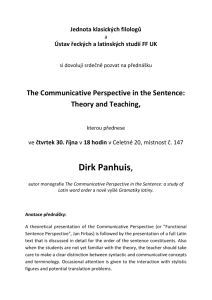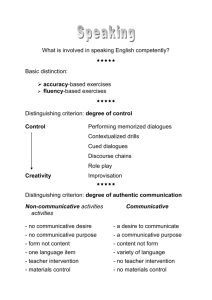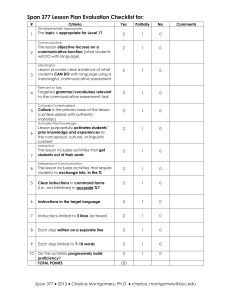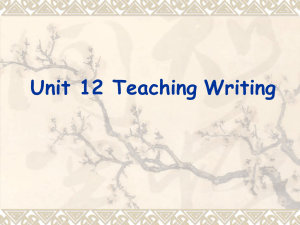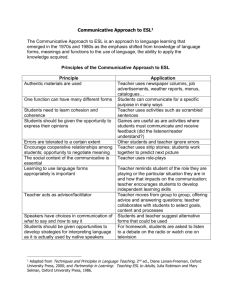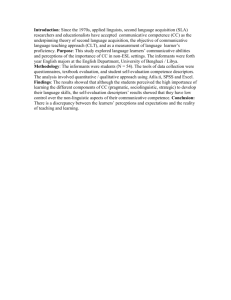introduction and contents
advertisement
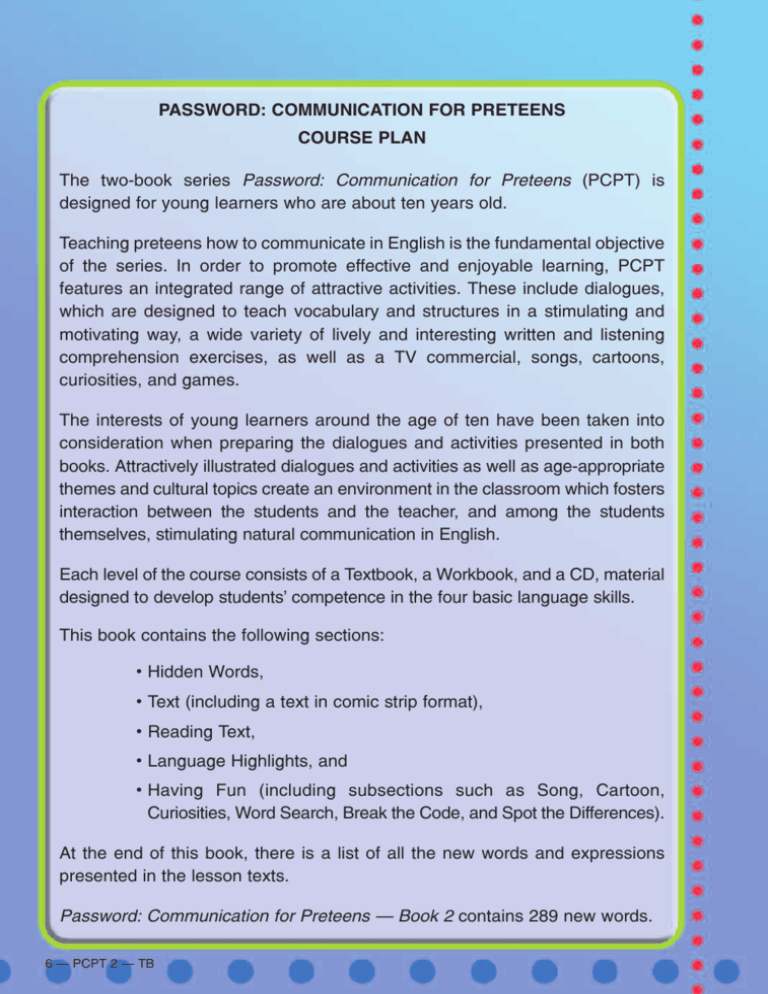
PASSWORD: COMMUNICATION FOR PRETEENS COURSE PLAN The two-book series Password: Communication for Preteens (PCPT) is designed for young learners who are about ten years old. Teaching preteens how to communicate in English is the fundamental objective of the series. In order to promote effective and enjoyable learning, PCPT features an integrated range of attractive activities. These include dialogues, which are designed to teach vocabulary and structures in a stimulating and motivating way, a wide variety of lively and interesting written and listening comprehension exercises, as well as a TV commercial, songs, cartoons, curiosities, and games. The interests of young learners around the age of ten have been taken into consideration when preparing the dialogues and activities presented in both books. Attractively illustrated dialogues and activities as well as age-appropriate themes and cultural topics create an environment in the classroom which fosters interaction between the students and the teacher, and among the students themselves, stimulating natural communication in English. Each level of the course consists of a Textbook, a Workbook, and a CD, material designed to develop students’ competence in the four basic language skills. This book contains the following sections: • Hidden Words, • Text (including a text in comic strip format), • Reading Text, • Language Highlights, and • Having Fun (including subsections such as Song, Cartoon, Curiosities, Word Search, Break the Code, and Spot the Differences). At the end of this book, there is a list of all the new words and expressions presented in the lesson texts. Password: Communication for Preteens — Book 2 contains 289 new words. 6 — PCPT 2 — TB PAGE LESSON 1 9 AT HOME Communicative Objectives: Greetings / Asking and saying how someone feels / Thanking someone / Asking for and giving information about something / Making a suggestion / Agreeing I, YOU, IT AND THE VERB TO BE MY, YOUR LESSON 2 17 AT THE PARK Communicative Objectives: Asking for and giving information about someone / Praising someone A or AN? THIS, THAT HE, SHE AND THE VERB TO BE LESSON 3 26 A PAJAMA PARTY Communicative Objectives: Asking for and giving information about location / Using a polite expression / Saying good-bye / Expressing preference / Agreeing NUMBERS — 0 to 12 WE, YOU (plural) AND THE VERB TO BE HIS, HER, OUR LESSON 4 34 SKATERS AND SKATEBOARDS Communicative Objectives: Expressing opinions / Asking for and giving information about someone / Giving praise / Talking about leisure activities WHO THESE, THOSE THEY AND THE VERB TO BE THEIR LESSON 5 44 A NICE BROTHER Communicative Objectives: Asking for and giving information about location THERE IS UNDER, BETWEEN, ON PCPT 2 — TB — 7 LESSON 6 53 ON THE INTERNET Communicative Objectives: Asking for and giving information about something / Asking and telling the time / Buying tickets on the Internet NUMBERS — 13 to 69 THERE ARE LESSON 7 62 LUNCHTIME Communicative Objectives: Talking about actions in progress / Expressing an opinion THE PRESENT CONTINUOUS TENSE YOUR (plural) LESSON 8 71 CAMPING Communicative Objectives: Talking about actions in progress / Talking about quantities THE PRESENT CONTINUOUS TENSE (CONTINUED) HOW MANY . . . ? LESSON 9 79 IN THE BEDROOM Communicative Objectives: Understanding addresses / Asking and giving information about events NUMBERS — 70 to 99 POSSESSIVE CASE (’S) WHOSE LESSON 10 87 ON THE PHONE Communicative Objectives: Asking how someone feels / Introducing someone VOCABULARY LIST 8 — PCPT 2 — TB 93
